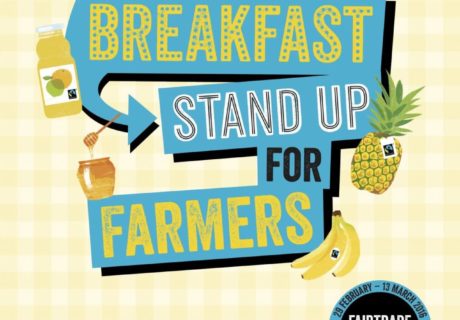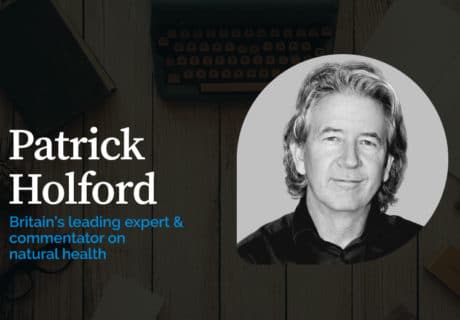A major new initiative to promote the idea that food prices should reflect the true cost of food was jointly announced by the global organic group IFOAM and the Nature & More label earlier this month in Germany.
According to the UN’s Food and Agriculture Organization (FAO), the hidden costs of conventionally produced food amount to 700 billion USD in environmental damage and 900 billion USD in social costs – together 1.6 trillion USD. If prices of food products were to reflect the true costs, organic products would be significantly cheaper than conventional products. That’s the main message of the True Cost of Food campaign that Nature & More (the ‘trace and tell” label of organic fruit and vegetable distributor Eosta) launched at a press conference in Berlin during International Green Week.
The campaign was started as a joint effort together with the FAO, who recently published a groundbreaking full cost accounting study. At the launch, former German minister of agriculture and Green politician Renate Künast said that the externalisation of environmental and social costs was a subject that had been on the international food agenda for decades now. “Enough talking now,” she said. “Making these costs transparent at point of sale is a revolutionary step and a food revolution is just what we need.”
Volkert Engelsman, CEO and founder of Nature & More/Eosta, is the initiator of the campaign. In 2015 he played a key role in the international Save Our Soils campaign that raised awareness about the dangers of worldwide soil degradation and the urgent need to shift to soil-conserving agricultural methods. He said: “If you look at the numbers, it becomes crystal clear that conventionally produced food should be considerably more expensive than organic food. We can now show how big the difference really is.”
At the press conference, Markus Arbenz, director of co-host IFOAM, stressed the need for internalising costs: “Our government now has to purify drinking water contaminated with nitrates, farmers become impoverished, the animals reared for meat consumption suffer, and many species are driven to extinction. Nobody wants that to happen, but it keeps happening. The only way to solve the deadlock is to let the polluter bear the costs instead of putting the burden on taxpayers, farmers, future generations, or the environment.”
Felix Prinz zu Löwenstein, president of the German Association of Ecologic Agriculture BÖLW, added: “The transformation has already begun. Organic farmers, organic food processors and retailers show, together with consumers, where the future of sustainable food production lies. However this will only work across the board if the prices of our food products actually convey the truth.”
German retailer BioCompany is the first grocery retail chain to take the message into stores. CEO Georg Kaiser said: “We are thrilled to be the first food store in the whole of Germany to communicate the real costs of food. The first results confirm the choice we have made: organic is the way to go.”




